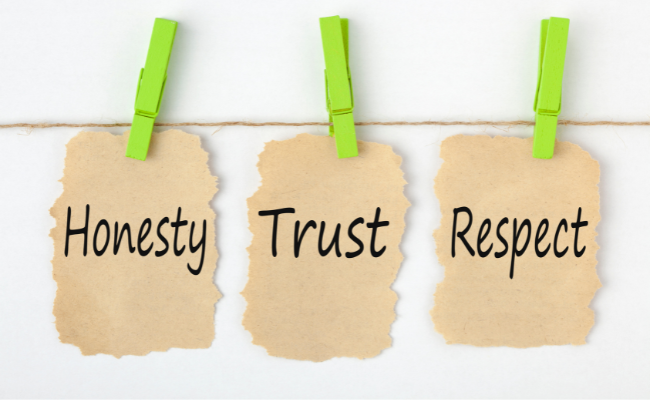The Godfather, Loyalty, & Business with Lou Bortone
“Coppola presented in The Godfather that crime and business are essentially the same thing, but even among thieves there is a code of honor. What’s missing in today’s business world is loyalty and trust.” – Lou Bortone
I sat down with one of my long-standing friends in business, Lou Bortone, a popular speaker and the author of Video Marketing Rules: How to Win in a World Gone Video.
Lou has over two decades of experience as a marketing executive in TV and entertainment and has worked as the National Promotion Manager for E! Entertainment Television and the Senior Vice President of Marketing for Fox Family Worldwide.
We discuss:
- How the lessons of The Godfather apply to business and life
- The challenge of building company loyalty in the post-pandemic world
- Why relationships are critical in business
How the lessons of The Godfather apply to business and life

Some films impact us in the most unexpected ways, at the most unexpected times. Think of a movie or a story that has stuck with you for years—why? For Lou, it was the representation of authentic Italian values in The Godfather.
“My obsession with The Godfather started at a young age when the film was first released on my birthday in 1972.” Lou shares, “And it struck me—I was 11 years old, and I saw it in a drive-in movie. I was probably supposed to be asleep by then. But I was still awake and looking up from the backseat and saying, ‘oh my gosh, these characters—even though the movie took place in 1945—all these people in the movie look really familiar.’”
The familiarity had little to do with the violence and the crime depicted in the movie. Lou saw more than that—honor, loyalty, trust, family, and tradition.
“It was really the first time Italians had been seen not as a cliche but as very authentic with family, honor, and loyalty. And those were the things I recognized from growing up in a very Italian neighborhood with Italian grandparents who came over from Italy. So it was really the first movie to present Italians in a very authentic way.”
Francis Ford Coppola, the director, framed The Godfather as a metaphor for business in America. In many ways, crime and business are two sides of the same coin. With a commentary like that, it’s easy to see how applying those values to the business world makes sense.
“The power base for The Godfather and the Mafia is based on loyalty and trust. So even among thieves, they had a code of honor, which fascinated me, and I think a lot of what's missing in today's business world is that loyalty and trust.” Lou continues.
The challenge of building company loyalty in the post-pandemic world

Loyalty and trust between company, employee, and customer—what does that look like when the new “offices” and “stores” are bedrooms, spare rooms, and kitchen tables? When work and buying can happen anywhere, at any time, how do companies foster connections and build brand affinity?
“We're not around the water cooler. We're not going out for beers after work. I look at my kids who are grown up—their 25-year-old twins who have been out of school for three years—and they have never worked in an office, they've been remote 100% of the time. And I think, ‘oh, my gosh, how do you have any loyalty to your company?’” Lou shares.
Like almost anything worth doing, the answer is simple but not easy: creativity.
Creativity through how we connect with employees and customers alike. Creativity in how we display genuine care for the people in our sphere who make it possible for us to operate. In other words, putting in the extra mile to showcase trustworthiness and honesty and gaining that in return.
“People are having holiday parties on Zoom, where everybody comes together that way. It's more difficult than being face-to-face in person, but you still have to make the effort to try to build that trust and loyalty inside and outside the business.” Lou points out, “The same goes for customer loyalty and brand loyalty. There's a report that says that 77% of brands could disappear tomorrow, and no one would even care.”
Why relationships are critical in business

Nowadays, the customer is in control. They navigate the who, why, and when of their purchases 24/7. With endless options, why would they choose our brand or service?
Relationships. Relationships with the mission, the brand personality, the product results, the employees, and the feeling they get when they shop with us. Building that relationship separates the nondescript store brands with names like Apple and Harley Davidson.
“It's almost like a cult, and I don't say that in a bad way,” Lou explains, “But there are Mac people, and there are PC people. There are Harley Davidson people, and there are Yamaha people, but I think it's because they build almost a cult of personality around their brand. It comes back to how they take care of their folks.”
When you go to an Apple store, it's an experience, not simply a transaction. To cultivate loyalty among customers—and employees—brands need to become more human and put a face to the brand in as many ways as possible.
“I try to love on my clients a lot. Sometimes I'll send cookies, popcorn, or goodies, fun little things to try to be more human. I don't want to be a transaction. I want it to be a relationship based on trust.” Lou explains.
If you’re a brand searching for ways to build affinity, what is one way you could inject more humanity into your company?
Remember to check out Lou’s full episode for further insights on building trust and loyalty, and learn more at LouBortoneSpeaks.com!








